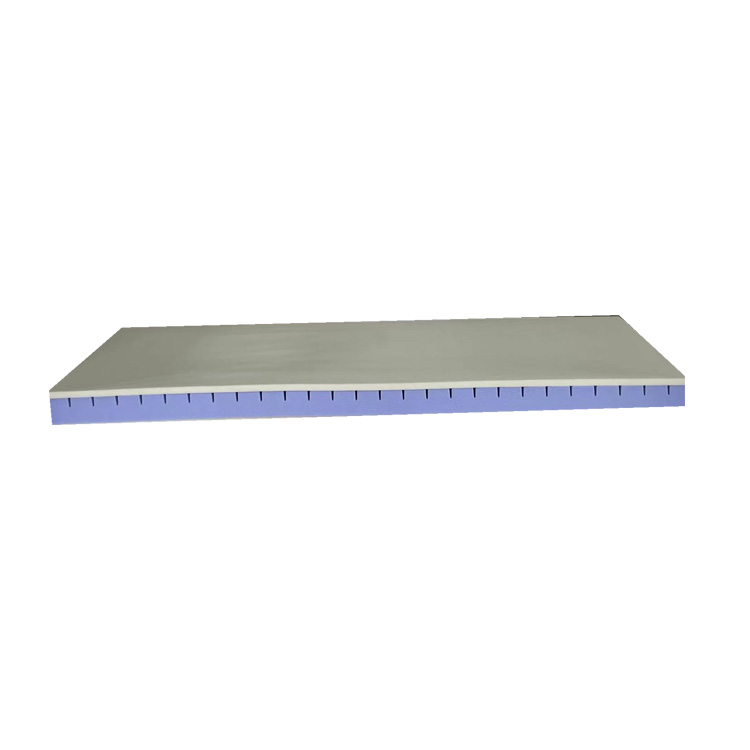anti-decubitus air mattress product
The Importance of Anti-Decubitus Air Mattresses A Comprehensive Guide
In an era where healthcare and comfort play pivotal roles in patient care, the significance of anti-decubitus air mattresses cannot be overstated. These specialized mattresses have been designed to prevent pressure sores, also known as bedsores or decubitus ulcers, which commonly affect individuals who are bedridden or have limited mobility.
Understanding Pressure Sores
Pressure sores develop when there is prolonged pressure on the skin, typically over bony areas of the body such as the heels, elbows, and sacrum. Factors contributing to their formation include immobility, poor nutrition, and moisture. Once formed, these sores can become infected and lead to serious health complications, making prevention critical for individuals at risk.
Features of Anti-Decubitus Air Mattresses
Anti-decubitus air mattresses work by redistributing body weight and continuously alternating pressure points. This dynamic support system alleviates the pressure exerted on specific areas of the body, promoting better blood circulation and reducing the risk of skin breakdown. There are several key features that set these mattresses apart
1. Air Cell Technology Most anti-decubitus air mattresses consist of multiple air cells that can be individually inflated or deflated. This technology allows for real-time adjustment of pressure distribution, directly responding to the patient's movements.
2. Alternating Pressure Relief Many models utilize alternating pressure systems, where air cells inflate and deflate in a cyclical manner. This movement helps to mimic the natural changes in pressure that occur when a person shifts their weight while sleeping or resting.
3. Comfort and Support High-quality anti-decubitus air mattresses are designed with patient comfort in mind. They often feature adjustable firmness levels, allowing patients to customize their sleeping surface according to their preferences.
4. Ease of Use Many mattresses come with user-friendly control units that allow caregivers to adjust settings with minimal effort. Additionally, lightweight materials make them easier to install and manage.
anti-decubitus air mattress product

5. Durability and Hygiene Anti-decubitus mattresses are typically made from strong, easy-to-clean materials that resist moisture and bacteria, critical for maintaining hygiene in healthcare settings.
Benefits of Using Anti-Decubitus Air Mattresses
The benefits of incorporating anti-decubitus air mattresses into patient care routines extend beyond mere prevention of pressure ulcers. They contribute to overall patient comfort, promote better sleep quality, and can even facilitate quicker recovery times for individuals undergoing surgery or suffering from chronic illnesses.
1. Improved Circulation By redistributing pressure, these mattresses enhance blood flow, helping to nourish tissues and reduce the risk of complications related to poor circulation.
2. Enhanced Mobility Patients who experience reduced pain and discomfort are more likely to engage in physical therapy and other forms of rehabilitation, promoting overall mobility and independence.
3. Cost-Effectiveness While the initial investment in an anti-decubitus air mattress may be higher than traditional mattresses, the long-term savings from reduced incidence of pressure sores, which can be expensive to treat, are significant.
4. Peace of Mind for Caregivers Caregivers can feel more confident in the quality of care they provide, knowing that their patients are protected from avoidable injuries caused by immobility.
Conclusion
Anti-decubitus air mattresses represent an essential component of modern healthcare practices aimed at safeguarding vulnerable patients. By understanding their features and benefits, healthcare providers and families can make informed decisions about patient care, ensuring a comfortable and healthy recovery environment. As the push for quality healthcare continues, the role of these innovative mattresses will undoubtedly remain crucial in enhancing patient outcomes and overall well-being.
-
The Effect of Coconut Foam Mattress Breathability and Humidity Regulation on Improving Sleep QualityNewsJul.03,2025
-
How Wave Mattress Systems Improve Blood Circulation During ImmobilityNewsJul.03,2025
-
The Climate-Adaptive Sleep Revolution: Exploring the Benefits of Cooling Gel Memory Foam MattressesNewsJul.03,2025
-
Exploration of the Role of Coconut Foam Mattress in Preventing Bedsores in the ElderlyNewsJul.03,2025
-
Comparing Wave Mattress and Air Mattress: Which Is Better for Medical Use?NewsJul.03,2025
-
Analysis of Comfort and Environmental Performance of Natural Latex and Coconut Foam MattressNewsJul.03,2025
-
Multi-Layer Construction for Enhanced Performance in Gel Mattress PadNewsJun.24,2025

